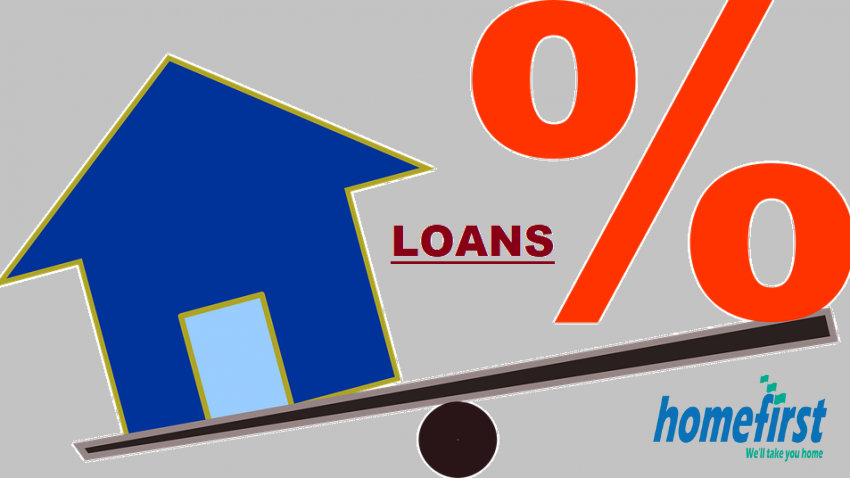Introduction to House Loans
What are house loans?
House loans, also known as mortgages, are financial products that allow individuals to purchase homes without having to pay the full purchase price upfront. Instead, borrowers make a down payment and repay the loan amount plus interest over a specified period, typically ranging from 15 to 30 years.
Importance of understanding house loan interest.
House loan interest rates significantly impact the total cost of homeownership. Even a slight difference in interest rates can translate into thousands of dollars over the life of the loan. Therefore, understanding how interest rates work and how to secure favorable rates is crucial for prospective homebuyers.
Understanding House Loan Interest
Fixed vs. Variable Interest Rates
House loans generally offer two types of interest rates: fixed and variable.
- Fixed interest rates remain constant throughout the loan term, providing stability and predictability in monthly payments.
- Variable interest rates, on the other hand, fluctuate based on market conditions, potentially leading to lower initial rates but greater uncertainty over time.
How interest rates affect monthly payments
The www.renewablefuelsnow.org/ rate directly influences the monthly mortgage payment. A higher interest rate results in higher monthly payments, while a lower interest rate reduces the monthly financial burden. Understanding this relationship is crucial for budgeting and financial planning.
Factors Influencing House Loan Interest
Credit Score and History
Lenders use credit scores and credit history to assess the risk of lending to a borrower. A higher credit score typically qualifies for lower interest rates, while a poor credit score may result in higher rates or even loan rejection.
Economic Conditions
Economic factors, such as inflation rates, unemployment, and the overall health of the housing market, also influence house loan interest rates. During periods of economic growth, interest rates may rise, whereas economic downturns often lead to lower rates.
Loan Term Length
The length of the loan term, such as 15 years or 30 years, can impact the interest rate. Generally, shorter loan terms come with lower interest rates but higher monthly payments, while longer terms offer lower monthly payments but higher overall interest costs.
Comparing Interest Rates from Different Lenders
Researching lenders
To secure the best interest rates, it’s essential to shop around and compare offers from multiple lenders. Online research, recommendations from friends and family, and consultations with mortgage brokers can help identify lenders offering competitive rates.
Negotiating interest rates
Don’t be afraid to negotiate with lenders to lower the interest rate. Factors such as a strong credit history, substantial down payment, or the potential for future business can strengthen your bargaining position and result in more favorable terms.
Tips for Securing the Best Interest Rates
Improving credit score
Before applying for a house loan, take steps to improve your credit score by paying bills on time, reducing outstanding debts, and correcting any errors on your credit report. A higher credit score can qualify you for lower interest rates.
Paying a larger down payment
Making a larger down payment reduces the loan-to-value ratio, which can lower the interest rate and potentially eliminate the need for private mortgage insurance (PMI), further reducing monthly expenses.
Choosing the right loan term
Consider your financial goals and budget when selecting the loan term. While shorter terms offer lower interest rates and faster equity buildup, longer terms provide more flexibility with lower monthly payments.
The Impact of Interest Rates on Total Loan Cost
Importance of calculating total loan cost
When evaluating house loan options, consider the total cost of the loan over its entire term, including interest payments. Calculating the total loan cost allows you to make informed decisions and choose the most cost-effective option.
Long-term effects of interest rates on finances
Even seemingly minor differences in interest rates can have significant long-term implications for your finances. By securing a lower interest rate, you can potentially save tens of thousands of dollars over the life of the loan, enabling you to build wealth and achieve other financial goals.
Refinancing House Loans
When to consider refinancing
Refinancing involves replacing an existing loan with a new one, typically to secure a lower interest rate or change the loan term. Consider refinancing when interest rates drop significantly or when your financial situation improves, allowing you to qualify for better terms.
Pros and cons of refinancing
While refinancing can lower monthly payments and save money on interest, it’s essential to weigh the costs and benefits carefully. Factors such as closing costs, loan terms, and future plans should be considered before deciding to refinance.
Avoiding Common Mistakes
Not comparing multiple offers
Failing to shop around and compare offers from different lenders can result in missed opportunities for better rates and terms. Take the time to explore all options and negotiate with lenders to secure the best deal.
Ignoring additional fees
In addition to interest rates, consider the impact of other fees and charges, such as origination fees, closing costs, and prepayment penalties, on the total cost of the loan. Be vigilant and factor in all expenses when evaluating loan options.
Case Studies: Real-life Examples
Success stories of securing low-interest rates
Share real-life examples of individuals who successfully secured low-interest rates by following the tips outlined in this guide. Highlight their strategies and the positive impact of securing favorable loan terms on their financial well-being.
Lessons learned from mistakes
Discuss common mistakes that borrowers make when navigating house loans and the valuable lessons learned from these experiences. By learning from others’ mistakes, readers can avoid pitfalls and make informed decisions.

